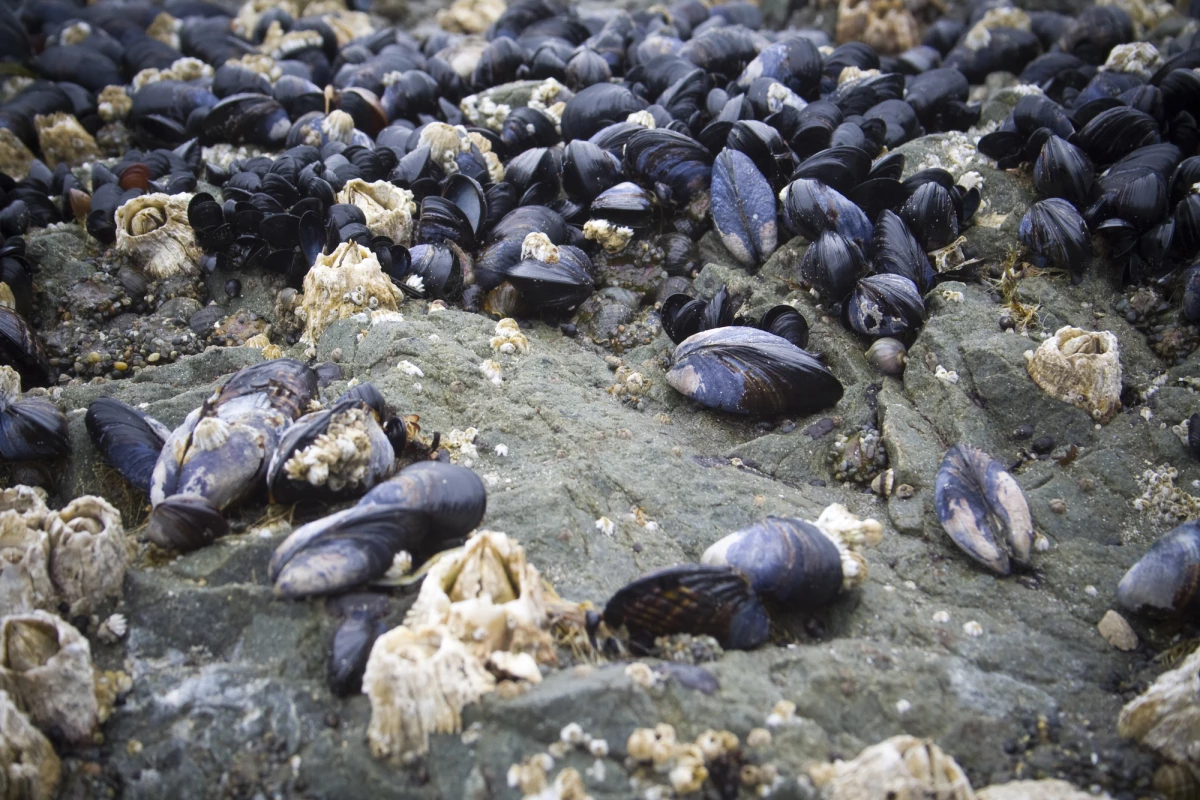Because they feed by filtering seawater, mussels are particularly vulnerable to pollutants present within that water. According to new research, it now looks like waterborne microplastics could keep the molluscs from growing to their regular size.
For the recent study, a team from Australia's RMIT University started by collecting Mytilus galloprovincialis mussels from Port Phillip Bay, near the city of Melbourne. Those mussels were placed in tanks in a lab, in which the water contained various concentrations of microscopic plastic beads similar to those used in cosmetics.
When the mussels were subsequently analyzed, it was found that the ingested plastics negatively affected the function of four of the creatures' key digestive enzymes. As a result, they had difficulty converting the starch in their natural diet into the simple sugars which they require to thrive and grow.
"We don’t think the plastic affects mussels directly, but it does reduce their ability to digest the real food in their gut, which means they miss out on energy and nutrients," said the lead scientist, Dr. Charlene Trestrail.
What's more, Trestrail believes that the lack of food energy may hamper the mussels' ability to mate, potentially leading to a drop in their numbers. Such a drop could have repercussions all the way up the ecosystem.
"We know lots about how plastics affect animals externally – we've all seen photos of birds and turtles entangled in plastic – but now we know more about what plastics do internally," said Trestrail.
The research is described in a paper that was recently published in the journal Science of the Total Environment. A previous study, conducted by scientists from Britain's Anglia Ruskin University, indicated that ingestion of microplastics also weakens the fibers which mussels use to cling to rocks.
Source: RMIT University




